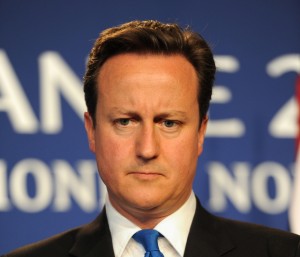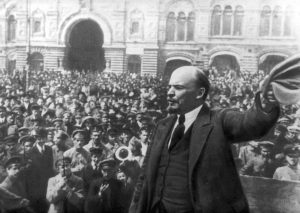
Source: Guillaume Paumier Licenced under CC BY 3.0 via Wikimedia Commons.
Lord Hailsham’s explanation of conservatism is correct, but only as far as it goes:
“Conservatism is not so much a philosophy as an attitude, a constant force, performing a timeless function in the development of a free society, and corresponding to a deep and permanent requirement of human nature itself.”
Fair enough, conservatism isn’t so much an ideological bias as a matter of intuitive, visceral predisposition.
But a temperamental proclivity is a liquid that needs to flow into a particular vessel, for otherwise it will end up as an amorphous puddle on the floor.
Just as there’s more to a religion than just faith, there’s more to conservatism than just ‘an attitude’.
Both faith and attitude require the forklift of doctrine and philosophy to rise above a personal idiosyncrasy to the height of a social phenomenon, a dynamic creative force.
For this force to acquire a practical, political expression it needs to be translated into compatible policies. In other words, what Lord Hailsham referred to is not conservatism but a predisposition for it, a base on which a structure can be erected.
This points at the Tories’ fundamental problem, which may yet cause the catastrophe of Ed Miliband moving into Downing Street next year.
The party fails on both fronts. It seems unable to translate people’s conservative longings into either a coherent philosophy or a set of policies based on such a philosophy.
In other words, the trouble with the Conservative party is that it’s no longer conservative – all its other problems are derivative.
Yet even if we accept Lord Hailsham’s explanation as sufficient, one doesn’t sense that many in the parliamentary Tory party have viscerally conservative attitudes.
A Tory frontbencher tweeting a woman he has never met pictures of his genitalia may be all sorts of things. But one thing he definitely isn’t is an intuitive conservative: we simply don’t do such things.
This isn’t to say that conservatives are incapable of sexual naughtiness or marital infidelity. We are all sinners, if Genesis is to be believed, and those few who overcome their compromised nature don’t become politicians. They become saints.
What any conservative would instinctively steer clear of is the tasteless vulgarity of such electronic exhibitionism. A conservative would never point a camera at his genitals; all his senses would scream ‘no!!!’.
Circumspection is another component of conservative predisposition: we may take necessary risks but we avoid unnecessary ones.
A conservative is perfectly capable of being stupid, but usually not of being stupidly reckless. Thus he would have stopped to think that a pretty, available blonde blatantly offering herself on Twitter just may be part of a sting operation concocted by either the press or political rivals (or, in the case of The Daily Mirror, both).
And even if she were genuine, a married conservative wouldn’t want to leave any evidence of his planned infidelity, certainly no photographs of himself letting it all hang out.
Unfortunately, it’s not only entirely possible but, these days, most likely that a man can end up on the Tory front bench without possessing any of the qualities highlighted by Lord Hailsham.
After all, the entire leadership of the party, starting with our illustrious ‘heir to Blair’, are such men, which explains the second part of the party’s problem.
By and large, their few vaguely conservative policies, such as so-called austerity (increasing the deficit and debt at a slightly slower rate), have failed to inspire love among intuitive conservatives.
However, their demonstrably unconservative policies (homomarriage, Europe, immigration etc.) are guaranteed to inspire disgust.
Hence defections of Tory voters and now also MPs to Ukip. Their conscience, temperament and intelligence all tell them they can’t stay. And where else can they go, other than to Ukip?
Ukip, with its rather unconservative populism and certain fuzziness of policy details, doesn’t provide all the answers. But at least it provides some, more at any rate than the Conservative party that’s no longer conservative.
A dyed-in-the-wool Tory may regret the defection of MPs Douglas Carswell and Mark Reckless to Ukip. But even such a party-loyal individual will fail to notice the selfless nature of their act.
If Carswell is almost certain to retain his seat even as a Ukip candidate, Reckless’s chances of doing so are touch and go. This means he has done something none of our governing spivs would ever do: he risked his whole political career for the sake of principle.
On second thoughts, it might have been more than just principle. Mr Reckless could be driven simply by the visceral, emetic revulsion Dave Cameron inspires in every intuitive conservative.
As Daniel Hannan, MEP, explained, given this tendency among both the electorate and Tory MPs, it increasingly appears that the only way of sparing the country the disaster of Ed Miliband would be for the Tories and Ukip to pool their resources and campaign as a coalition.
So far neither party has shown much appetite for this accommodation, but the likelihood of staying out of power tends to focus politicians’ minds.
Such a coalition would be more natural than the current one between the Tories and LibDems, what with both partners cordially loathing each other, at least at the grassroots level. But would it be natural enough?
As a senior Ukip politician told me recently, his party doesn’t trust Dave to keep whatever promises he’s likely to make. Such concerns aren’t unwarranted, considering Dave’s track record and his character, which has now had enough time to emerge from the fog of his empty verbiage.
The Tories, on the other hand, fear that an association with Ukip would cost them the support of the Blair fans in the ranks of all parties. That support is something Dave would dearly love to inherit, along with Tony’s knack at manipulating the public.
Hence it’s unlikely that the two parties will form a pact – unless, of course, they feel it’s the only way to get elected.
When the polls point at a guaranteed defeat, Cameron’s wish to remain Prime Minister, and Farage’s possibly to become his Deputy, may overcome the mutual revulsion the two men obviously feel.
They may think a Tory-Ukip coalition would be the lesser evil. The conservatives among us may think the same thing.









Comments